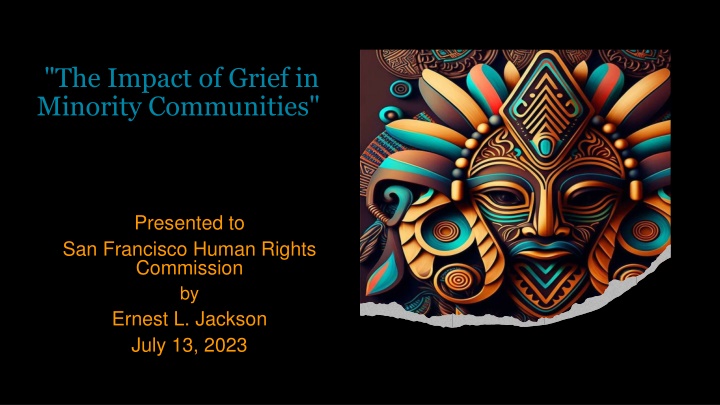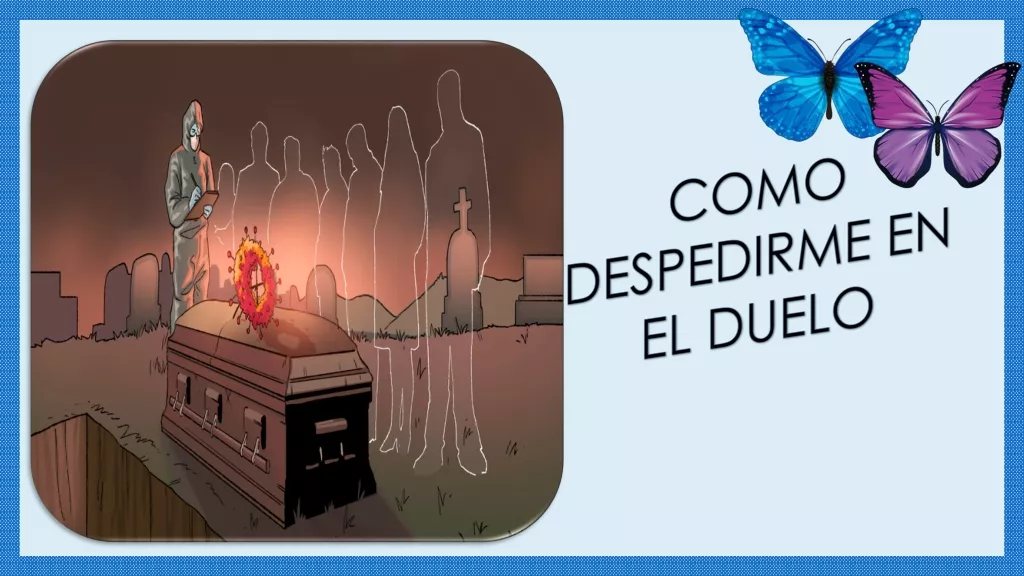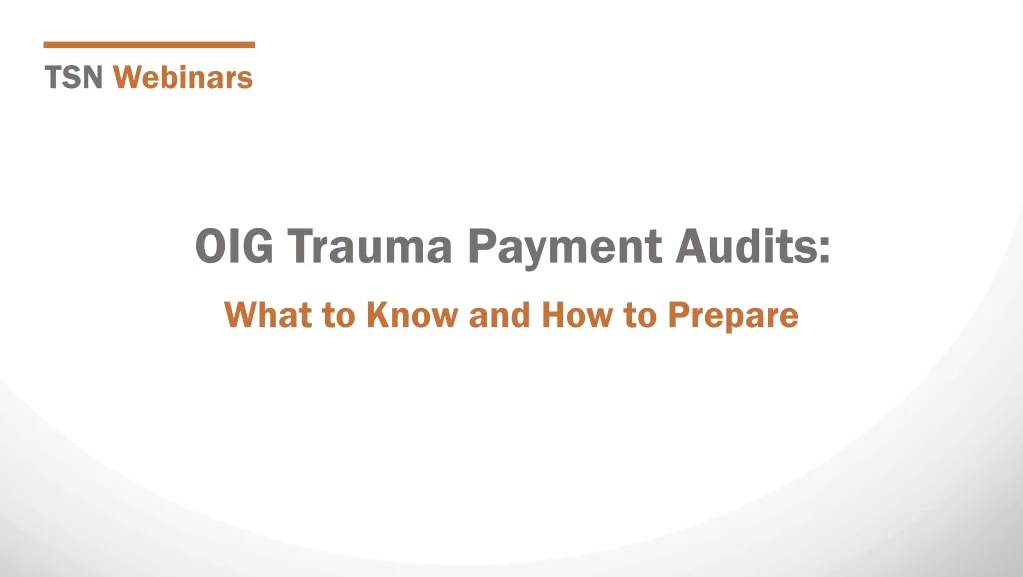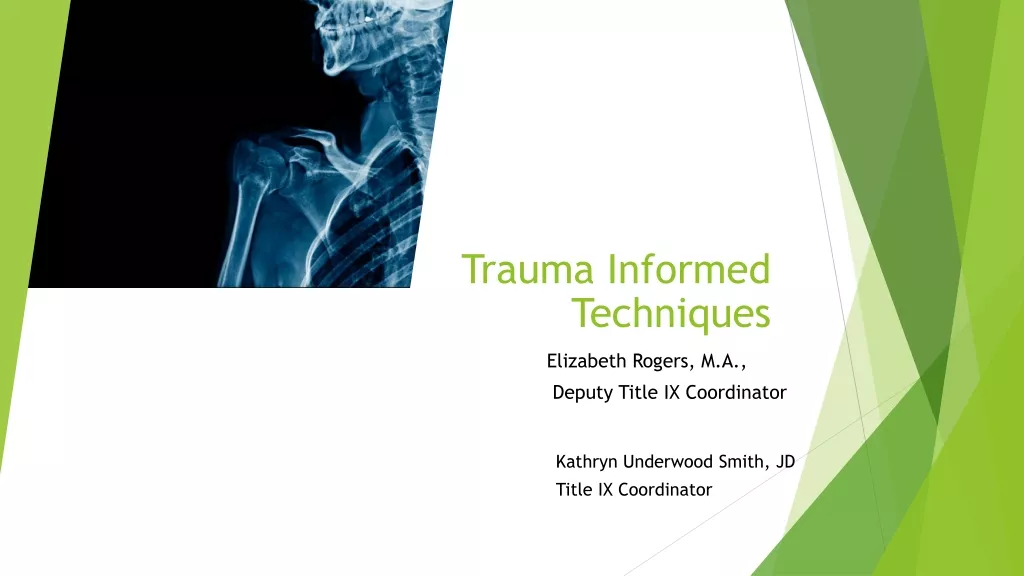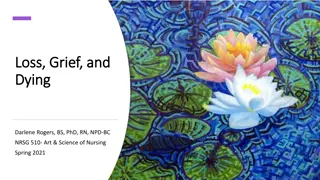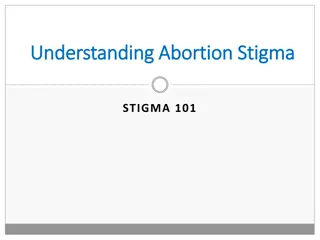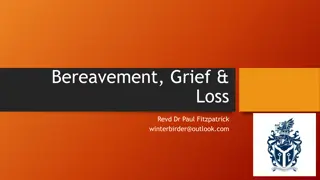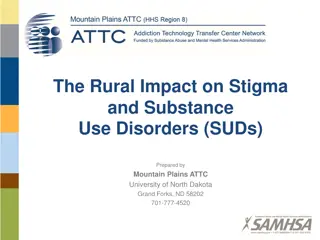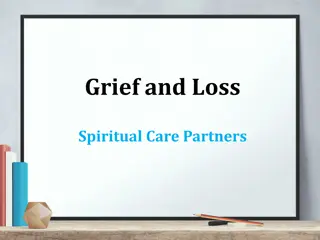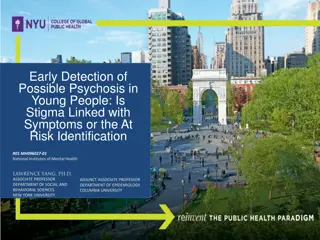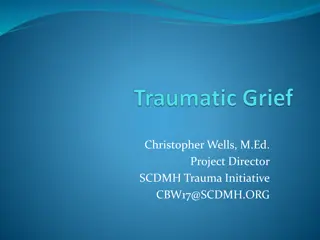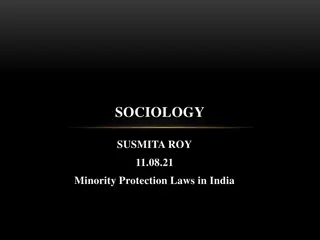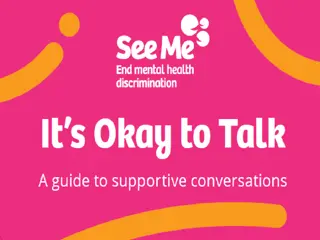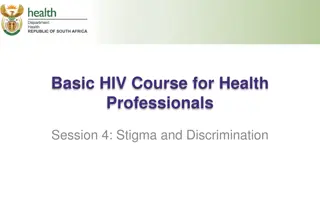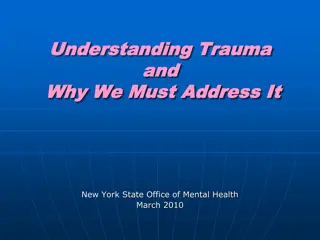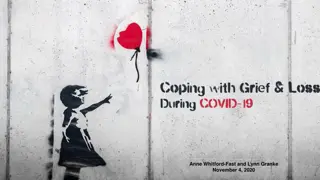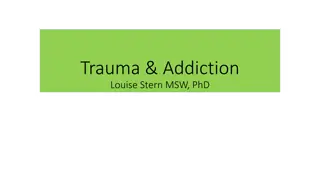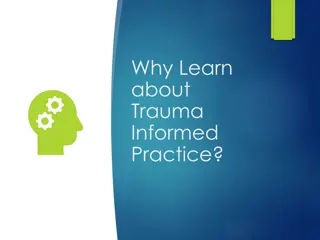The Impact of Grief in Minority Communities: Understanding Trauma, Grief, Loss, and Stigma
Exploring the emotional responses of trauma, grief, and loss in minority communities, this presentation sheds light on the physical, emotional, and behavioral symptoms associated with such experiences. It also delves into the stigma surrounding mental health in Black and Latinx communities, highlighting the barriers to seeking help and the cultural beliefs that contribute to these challenges.
Download Presentation

Please find below an Image/Link to download the presentation.
The content on the website is provided AS IS for your information and personal use only. It may not be sold, licensed, or shared on other websites without obtaining consent from the author.If you encounter any issues during the download, it is possible that the publisher has removed the file from their server.
You are allowed to download the files provided on this website for personal or commercial use, subject to the condition that they are used lawfully. All files are the property of their respective owners.
The content on the website is provided AS IS for your information and personal use only. It may not be sold, licensed, or shared on other websites without obtaining consent from the author.
E N D
Presentation Transcript
"The Impact of Grief in Minority Communities" Presented to San Francisco Human Rights Commission by Ernest L. Jackson July 13, 2023
Trauma, Grief, and Loss Trauma, Grief, and Loss Trauma is an emotional response to a deeply distressing or disturbing event or experience. Grief is the natural emotional response to loss. Loss is the absence of something that was once present.
Trauma, Grief, and Loss Trauma, Grief, and Loss All three of these concepts can be interrelated. For example, the death of a loved one can be a traumatic event, and the grief that follows can be a long and difficult process. Trauma, grief, and loss can have a variety of physical and emotional symptoms.
Trauma, Grief, and Loss Trauma, Grief, and Loss Physical symptoms: Fatigue, sleep problems, changes in appetite, headaches, muscle aches, and stomach problems. Emotional symptoms: Sadness, anger, anxiety, guilt, loneliness, despair, and hopelessness. Cognitive symptoms: Difficulty concentrating, forgetfulness, and intrusive thoughts.
Trauma, Grief, and Loss Trauma, Grief, and Loss Behavioral symptoms: Withdrawal from social activities, changes in eating habits, and substance abuse.
Stigma and Mental Stigma and Mental Health Health Stigma related to mental illness is pervasive in the United States but can be particularly strong in Black and Latinx communities. Stigma can lead to people avoiding seeking help for mental health problems, which can have serious consequences for their health and well-being.
Stigma In Minority Stigma In Minority Communities Communities There are a number of factors that contribute to stigma related to mental illness in Black and Latinx communities. 1. Stereotypes about mental illness. 2. Fear of discrimination and being ostracized in one s community. 3. Cultural beliefs.
The Impairment of Stigma The Impairment of Stigma Stigma can prevent people from seeking the help they need to cope with complicated grief. It can also lead to people feeling isolated and alone, as they may feel like they are the only ones who are struggling.
Possible Solutions to Stigma Possible Solutions to Stigma Educating people about mental illness and its impact on individuals and families. Encouraging people to seek help for mental health problems. Providing culturally-sensitive mental health services.
Identify Brokers of Trust Identify Brokers of Trust Individuals who hold informal positions of influence in and among the community as leaders, community sages and elders, and parental figures in underserved and historically ill-treated (abused, mistreated, maltreated, neglected injured, harmed, marginalized) communities by the medical profession
Complicated Grief Complicated Grief Complicated grief can trigger retaliation in the case of violence where a family member is killed. It is a form of prolonged grief that can lead to intense emotional pain, difficulty accepting the death of a loved one, and a sense of emptiness. Complicated grief can also lead to anger, rage, and a desire for revenge.
Complicated Grief Complicated Grief On December 16, 2001, an article from the SF Chronicle appeared in 2001, titled The Killing Street: A Cycle of Vengeance and Blood Feud in Bayview-Hunters Point. It was an article about a number of unsolved homicides that had devasted one of San Francisco s most close-knit communities.
Complicated Grief Complicated Grief In the article, a ten-year-old boy was quoted saying, "It's Harbor Road and West Point Road, back and forth, back and forth. I can't get the shootings out of my mind." This is an indication that this ten-year- old child was suffering from post- traumatic stress or complicated grief, or both. https://www.sfgate.com/news/article/THE-KILLING-STREETS-A-Cycle- of-Vengeance-2839391.php#photo-2223932
In the article, two comments stuck out: 1. A teacher commented: "Every time someone is killed, a large number of the kids don't come to school," said Faye Anderson, principal of the 21st Century Academy public school on Silver Avenue. "Everyone in this community is related, it seems -- cousins, brothers -- and anytime someone is killed, it has like a domino effect through the community. The children attend the funerals. They don't understand how this happens, and they are hurt very deeply.
2. As the homicides continue and suspects roamed free, many in the community see the deaths as a natural byproduct and burden in an area already beset by poverty, pollution, high disease rates, unemployment, and a string of broken government promises.
Community Grief Community grief is the experience of grief that is shared by a community after a shared loss. This loss can be the death of a community member, a natural disaster, or a terrorist attack. Community grief can be a powerful force, both positive and negative.
Community Grief In reference to Black/African American grief, a new thought called Community Grief is emerging and being studied. See From Grief to Grievance: Combined Axes of Personal and Collective Grief Among Black Americans, by Da Mere T. Wilson and Mary-Francisco O Conner.
Community Grief While Black Americans are contending with living shorter and sicker lives due to the material manifestations of systemic racism, we are simultaneously exposed to the abuse and death of fellow Black Americans due to racist violence. This chronic exposure to racist violence marks the second axis of grief that is characteristic of the Black American experience collective grief.
Community Grief While Black Americans are contending with living shorter and sicker lives due to the material manifestations of systemic racism, we are simultaneously exposed to the abuse and death of fellow Black Americans due to racist violence. This chronic exposure to racist violence marks the second axis of grief that is characteristic of the Black American experience collective grief.
Community Grief: George Floyd The idea of Community Grief in the African American community is seen and real as we all collectively watched the execution of George Floyd at the hands of racist Minneapolis police. We felt the evil and hatred inflicted on George Floyd as he struggled to tell the officer that he could not breath and he called for his mother as he was dying.
Community Grief On the positive side, community grief can bring people together and help them to heal. On the negative side, community grief can also lead to conflict and division.
"The Impact of Complicated Grief in Minority Communities" Presented to San Francisco Human Rights Commission by Ernest L. Jackson July 13, 2023
Conclusion There are many ways to cope with Complicated Grief and Community Grief. Some people find it helpful to join a support group, while others prefer to grieve privately. Some people find comfort in religious or spiritual practices, while others find comfort in spending time with loved ones. There is no right or wrong way to grieve, and the best way to cope will vary from person to person.
Conclusion Here are some additional resources that may be helpful: The National Center for Grieving Children and Families: https://www.childrengrieve.org/ The Dougy Center: https://www.dougy.org/ The Compassionate Friends: https://www.compassionatefriends.org/ The American Foundation for Suicide Prevention: https://afsp.org/
